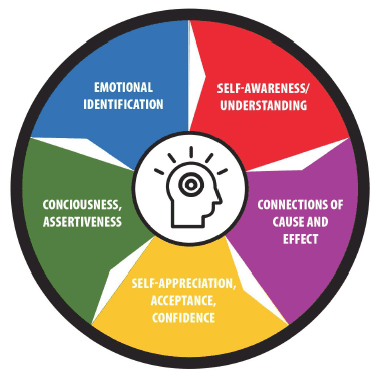Table of Contents
Emotional Intelligence Training Courses - Four Lenses in Oceanside California
She divided the sample population into two groups and offered a four-week E.I. training to just one of the groups. Findings from her research study showed that the group that received the practice not only revealed marked enhancement in their psychological abilities, however they also continued to manifest the very same even after six months of the experiment.
Although Delphine Nelis started this pilot research study, now you can also become an Emotional Intelligence Professional and teach others by enrolling in our extremely acclaimed Emotional Intelligence Masterclass. This is the best way to assist others comprehend and utilize their feelings in life-enriching ways. How Do We Establish Emotional Intelligence "If you are tuned out of your own emotions, you will be poor at reading them in other individuals." Daniel Goleman Emotional Intelligence consists of abilities like self-motivation, psychological regulation, self-management, empathy and impulse control (Goleman, 1995).
The factor why IQ is independent of EQ is that EQ continues to improve and enhance over a lifetime, so it is never ever far too late to begin finding out about Emotional Intelligence. E.Q. and I.Q. Emotional Ratio Intelligence Ratio Characteristics Compassion, great interpersonal relationships, survival skills, capability to control impulses, thoughtful, delicate Logical, analytical mind, thinking capabilities, abstract thinking, problem-solving abilities Suitable professions High E. Four Lenses.Q.

Mayer-Salovey-Caruso Test2. Daniel Goleman Design Test3. Emotional Quotient Inventory 1. Stanford-Binet Intelligence Scale2. Wechsler Intelligence Scale For Grownups and Kids 5 Ways To Establish Psychological Intelligence Developing emotional intelligence suggests developing a cluster of inherent qualities that help us in enhancing our mental wellbeing on a day-to-day basis. Here are five basic manner ins which we can follow besides expert E.I.


1. Recognizing The Negative Feelings A large chunk of psychological intelligence lies in psychological management. How well we control our sensations and effectively use them makes us more resistant and immune to stress. emotional intelligence. When we can identify the emotions that bring us down, we are less most likely to get overwhelmed by external hardships and tire our mental energy.
Withdraw yourself from the heated situation and spend some time to gather your thoughts and 'choose' your reactions carefully (Four Lenses). Do not jump to conclusions. Inspect yourself the moment unfavorable thoughts start clouding up. In a time of distress, specifically social conflicts, spare some minutes to look into the matter from the other person's point of view.

Notice how your mindset changes the minute you begin empathizing. 2. Self-Evaluation Prior to observing and comprehending others, view yourself. To develop E.I., we must learn to examine ourselves objectively and check out our actions from a bird's eye view. Challenge your thoughts by frequently asking yourself questions like: Am I believing the right way? Should I have utilized those words today? How would I have responded if I were in his/her place? Is there another method of checking out the matter? Am I on the best track? Is my family happy with me? Regular encounters with the self enhance perception, develops humbleness, together which contribute to building E.I.
Emotional Intelligence At Work – Four Lenses in Oceanside CA
Self-Expression Self-expression and psychological intelligence work together. Without one, we can not construct the other. People who can identify and reveal their ideas efficiently and in a more socially appropriate method normally are high up on emotional intelligence and self-efficacy (Mayer & Geher, 1996). Four Lenses. Self-expression suggests focusing on stronger and much better communication with others, communicating our ideas naturally and naturally, and taking care of a solution with communication.
4. Stress Management Recent research studies have suggested that individuals with emotional clarity and awareness are better at managing tension than others. Especially in the work environment, tension and burnout causes a marked degradation in our total psychological abilities and influence the way we react to them. People who attain incredible success in their expert lives do not get it only since they are proficient at the task, a lot of the success is the byproduct of their emotional and self-awareness (Schuler, Dowling, & De Cieri, 1993).
The most helpful stress decrease technique is by knowingly using our senses and remaining near nature (Leelavati & Chalam, 2020). Basic tension management techniques like the following can likewise make a considerable distinction in dealing with challenges without getting drained: Splash cold water on your face after a difficult encounter and return to work after that.

Avoid caffeine and smoke throughout hard times. Though individuals resort to these substances more throughout stress, it is best to prevent such stimulants when you feel anxious. Take a break from work when the task stress takes a toll on your psychological and psychological wellness. Go out with your family and spend some quality time to restore insight and return to combat stress better. emotional intelligence.
Table of Contents
Latest Posts
Free Online Emotional Intelligence Course - Four Lenses in Fontana California
Emotional Intelligence Training – in Los Angeles CA
Emotional Intelligence - Four Lenses in San Francisco CA
Navigation
Latest Posts
Free Online Emotional Intelligence Course - Four Lenses in Fontana California
Emotional Intelligence Training – in Los Angeles CA
Emotional Intelligence - Four Lenses in San Francisco CA